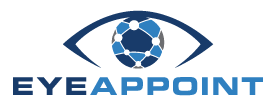You’ve likely encountered numerous assertions about the significance of Search Engine Optimization (SEO) as a critical digital marketing tool. However, do you truly comprehend the inner workings of SEO? Even if you possess a rudimentary understanding of its principles, you may still lack a comprehensive grasp of this intricate and multifaceted process.
SEO comprises a multitude of components, and comprehending these elements and their functionality is imperative to recognizing the vital role that SEO plays. In essence, SEO is of paramount importance because it enhances your website’s visibility, translating into heightened web traffic and increased opportunities for converting potential prospects into customers. Explore the arsenal of SEO tools available for optimizing your rankings.
Furthermore, SEO serves as a valuable instrument for fostering brand awareness, cultivating relationships with potential clients, and establishing yourself as an authoritative and trustworthy expert within your niche. Thus, this comprehensive guide aims to provide you with an in-depth understanding of SEO and its indispensable role in thriving within the contemporary digital landscape.
The Key Components of SEO Marketing
Keywords
Gone are the days when keywords reigned as the sole pivotal SEO technique, but this does not diminish their significance. Today, keywords must be meticulously researched, thoughtfully chosen, and judiciously incorporated into your content to yield effective results.
But what exactly are keywords? Keywords are the words and phrases that prospective users employ to discover online content, allowing brands to connect with individuals seeking their products and services. During the essential phase of keyword research, it is essential to identify high-search-rate, low-competition keywords, encompassing short-tail keywords (e.g., ‘dog’), long-tail keywords (e.g., ‘terrier puppies for sale’), and local keywords (e.g., ‘puppies for sale in Boston’) to integrate into your content. In addition to a primary or ‘seed’ keyword, having secondary and tertiary keywords can still deliver substantial value to your business. Finally, optimize titles, URLs, and other on-page SEO elements with these keywords.
Content
Content assumes a pivotal role in SEO, serving as the medium through which you engage and reach your audience. Understanding your niche and crafting relevant content is of paramount importance.
For instance, with your practice you aim to boost your online visibility, you might publish a series of blogs on eye diseases, contact lenses, new brands, and more. When individuals seeking eye-related information search for it, your blog will surface, allowing you to establish connections with potential clients by offering valuable insights. The goal is to be the first optometry practice that springs to mind when these prospects decide to have an eye exam.
Contemporary content must not only be informative but also engaging, pertinent, and shareable. Content can manifest in various forms, including:
- Web page content
- Videos
- Blogs (starting your own blog for practice is straightforward!)
- Infographics
- Podcasts
- Listicles
- How-to guides
- Whitepapers and e-books
- Social media posts
- Local Listings
Off-Page SEO
Off-page SEO encompasses external optimization practices conducted beyond your website.
The primary off-page SEO technique is backlink building, as high-quality backlinks from external websites signal to search engines that your site is valuable and of high quality, ultimately enhancing its authority.
There exists a multitude of tactics for backlink building, with some current best practices including guest blogging, creating widely shared infographics, and incorporating influencer marketing into your content.
Local SEO
Local SEO is progressively gaining prominence as an increasing number of individuals employ mobile devices for their searches. Presently, approximately 60% of all searches are conducted via mobile devices, with nearly half of them encompassing local intent.
In the case of your practice, local SEO will ensure that individuals in your vicinity encountering searches for the best local optometrists stumble upon your website.
In addition to employing local keywords, other best practices for local SEO include claiming directory listings, establishing location-specific pages on your website, and creating business pages (often referred to as ‘doorway pages’) on Google My Business local directories and Google Maps.
Search Engine Marketing
Search Engine Marketing (SEM) pertains to paid marketing endeavors and encompasses native ads, Google AdWords, social media ads, pay-per-click (PPC) campaigns, Google shopping ads, display ads, and more.
While SEM may not always serve as the centerpiece of a comprehensive SEO strategy, it holds its place by facilitating outreach to new, highly targeted audiences. Furthermore, the integration of SEO and SEM is possible.
SEM advertising activities include:
- Targeted paid campaigns
- Keyword-specific ad copy tailored to your business or product
- Performance metrics such as click-through rates (CTR) and cost-per-click (CPC)
Visibility and Rankings
Enhancing visibility represents one of SEO’s primary functions, enabling potential customers to discover your offerings with ease. Visibility correlates directly with your search engine ranking.
The higher your rank on a search engine results page (SERP), the greater the likelihood that prospective customers will encounter and visit your site. Hence, augmenting your organic page ranking is crucial. The efficacy of your SEO endeavors is directly proportionate to your ranking, which becomes particularly pivotal when considering that a quarter of internet users never venture beyond the first SERP.
Web Traffic
Increased web traffic constitutes a primary objective of SEO. This goal is achieved by augmenting visibility and rankings. For context, the first position on a Google search result garners nearly 32% of clicks, and advancing just one spot in the search results can augment click-through rates by an impressive 30.8%.
The coveted “Featured Snippet,” often referred to as position #0, holds a special allure. It typically extracts content from a landing page or blog to address specific user queries, significantly boosting organic click-through rates.
In summary, if you aim to attract a larger audience to your website via search engines, your SEO strategy must focus on securing a position among the top five results, ideally achieving the coveted number one spot.
Authority
Page Authority (PA) has grown in significance to search engines. Essentially, authority implies that your website is reliable, high-quality, relevant, and offers value.
Scores typically range from 1 to 100, with higher scores indicative of increased website authority. While influencing it directly can be challenging, many SEO experts believe it is linked to your link profile, which involves acquiring external links from reputable and highly visited sources.
Creating a Better Visitor Experience
Another pivotal reason for the importance of SEO is the enhancement of the visitor experience, accomplished through the creation of exceptional content and on-page SEO optimization. This translates into a seamless and positive user experience.
For instance, ensuring that your website is responsive makes it accessible to both mobile and desktop visitors. Improving page load speed reduces bounce rates and encourages longer site visits. Users anticipate rapid page loading, with a three-second limit to avoid high bounce rates and diminished conversions.
It is essential to recognize that search engines are not infallible. Neglecting to address their shortcomings can have adverse consequences for your website. For example, improper link structures can hinder the proper crawling and indexing of your site, potentially leading to lower rankings. Coding errors can obstruct search engine access entirely, preventing your site from ranking, regardless of the time invested in other SEO efforts. Other areas where search engines may encounter difficulties include:
- Duplicate pages
- Forms
- Non-textual content such as images, flash, audio files, and videos
- Language and semantics
Conclusion
At EyeAppoint we understand that SEO, Local Reputation, and Digital Marketing are complex and essential to the growth of your business. We are committed to providing tools, services, and information to help your business increase ranking in an increasingly competitive marketplace. Receive a free comprehensive audit during a demo, schedule one today!

